BÖËNA ARTICLE
Tortuguero classes teach
kids to play the music of their roots
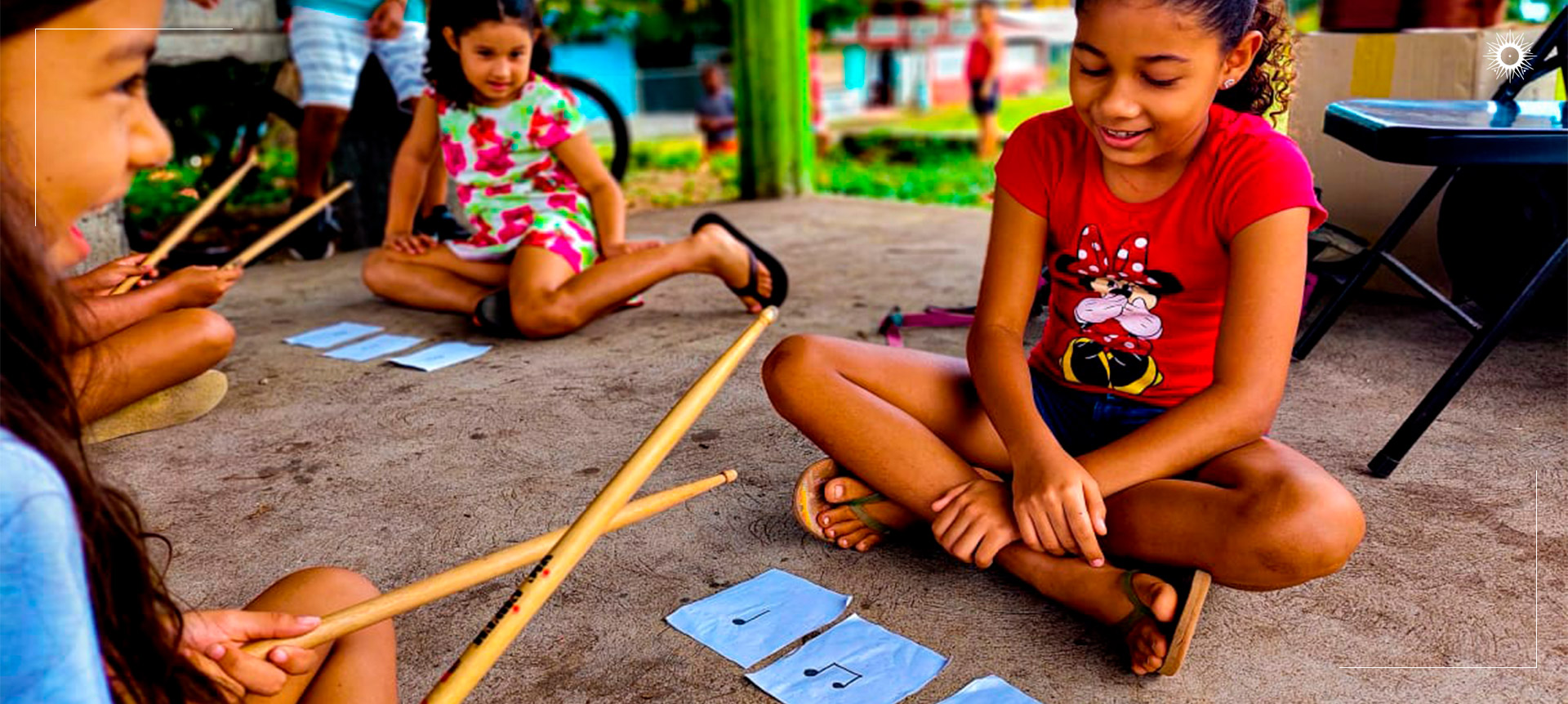
The children are banging on drums, congas and tambourines while Marlo Cabezas sings “Nowhere Like Limón,” tapping on a cowbell as he conducts his miniature orchestra at the Centro Comunal in Tortuguero.
We are at Escuela de Música Caribeña, a new music school where Marlo is on a mission to teach local children the Latin American and Caribbean music of their roots – introducing a new generation to traditional styles of music that are in danger of dying out here.
“The thing is, in this region they’re losing calypso and many of our roots,” he said.
This project is funded 100% by Tortuga Lodge, which pays Marlo’s salary. Tortuga is a pioneering ecolodge in Tortuguero that belongs to the Böëna Lodges, a collection of four hotels in exotic locales with a vision of protecting as much forest as possible and making sustainable tourism a successful strategy for the development of local communities.
Last November, the Tortuguero Cultural Collective was thinking of founding a music school, and when a friend recommended Marlo, he got the job.
“If we keep going to the same places in Latin America, listening to the same music, we’re going to be eating the same hamburger,” Marlo says. “But you don’t enrich yourself about the culture, the sharing and the transaction between the tourist and the community.”

|
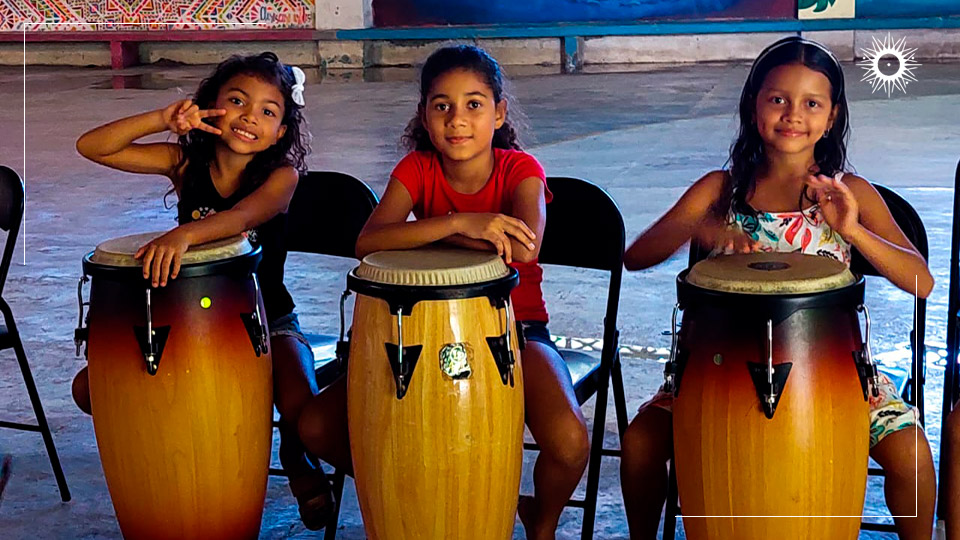
|
If you don’t remember exactly what calypso is, give a listen to Harry Belafonte’s 1956 classic “Banana Boat” (“Day-o! Day-o! Daylight come and me want go home”). You’ll instantly recognize the universal appeal of this music, a unique Afro-Caribbean style that originated in Jamaica and Trinidad. Calypso is lyrical, soulful, heartfelt and just plain fun to listen to. And Marlo says there is only one man left who still plays calypso in Tortuguero.
“For me, this is very personal,” said Marlo, 31. “I came out of the university, and I noticed that what they teach us in Latin American academies is music from Europe. And so with the need to learn Latin American music, to put in a little of my roots, I went traveling all over Latin America to learn the rhythms.”
A native of Alajuela, Marlo studying music and music instruction in San José. Then he hit the road to Nicaragua, Honduras, El Salvador, Guatemala, Mexico, the United States, Panama, Ecuador, Colombia, and even to Italy, the Netherlands and Switzerland, learning about the styles of music in different countries.
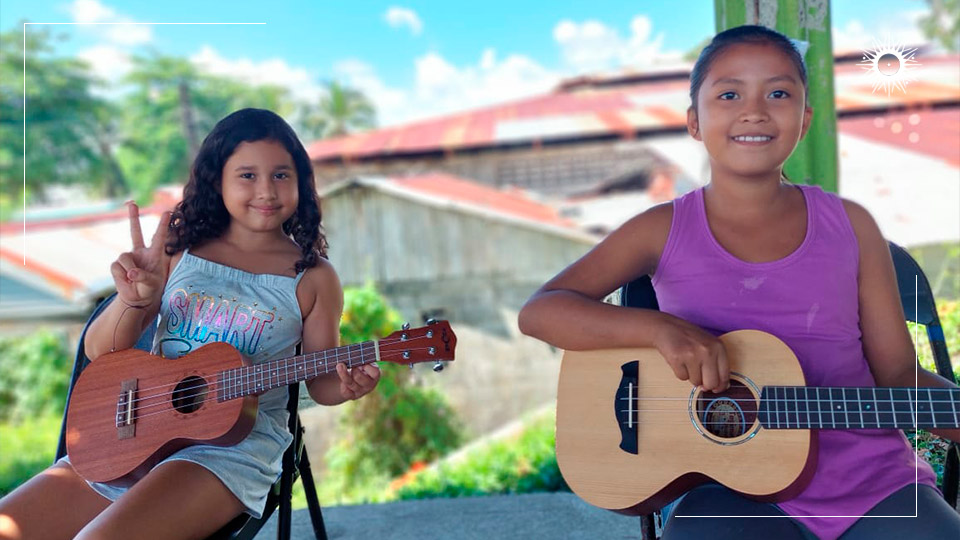
|
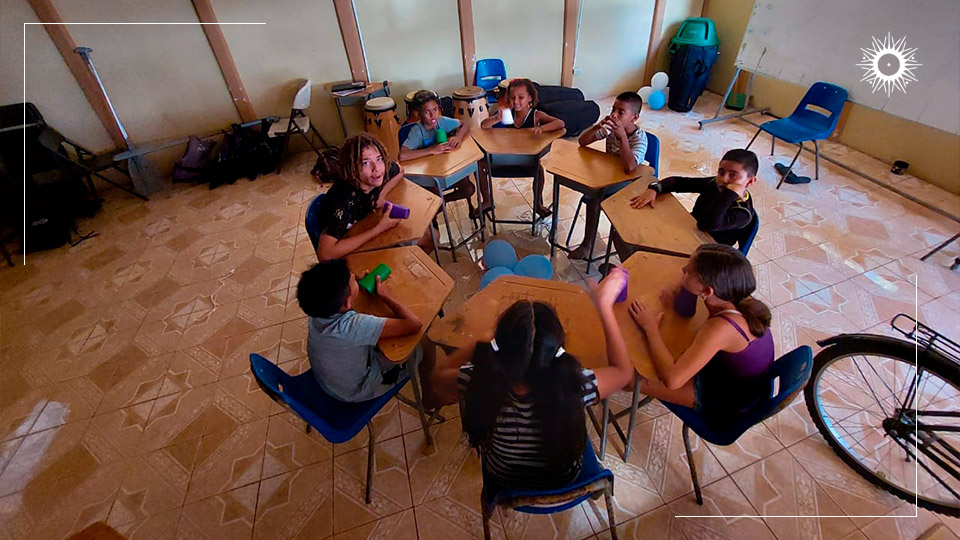
|
Last November, the call came from the Caribbean coast. Now he teaches 20 kids ages 8 to 15, one group in Tortuguero and one in nearby San Francisco. He teaches conga drums, bongo drums, cowbell, guitar, ukulele, banjo and quijongo. Lessons are held Monday through Friday from 3 to 5 and are totally free.
“We’d like to start a band and have presentations here, do concerts, promote the culture,” he said.
Marlo said they have lots of instruments stored in a warehouse gathering dust, including saxophones and trumpets, and they’d like to bring in instructors to teach those instruments as well.
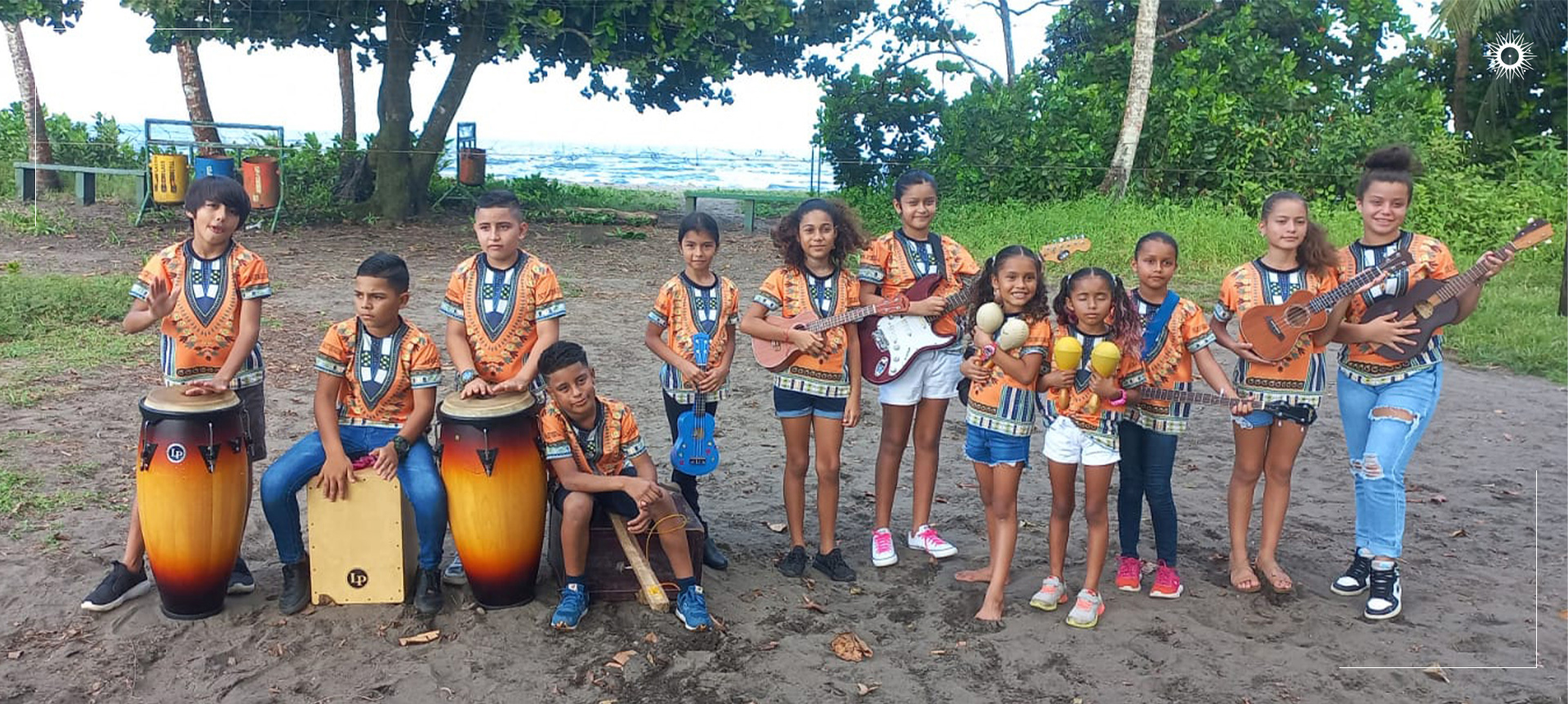
“There’s a big need for live music in hotels and restaurants,” he said. “That’s a bit of the dream we have, that later this will create jobs in the area, make a big impact on the culture and also attract tourism.”
Marlo is very proud of his students, who are having a lot of fun and also getting the hang of the instruments after just two months of instruction.
“Like all kids, you pay a little attention to them, and time, and plant a seed, give them some education,” he said. “And then they’re exposed to a lot of things, and I think that most of them have a big future.”